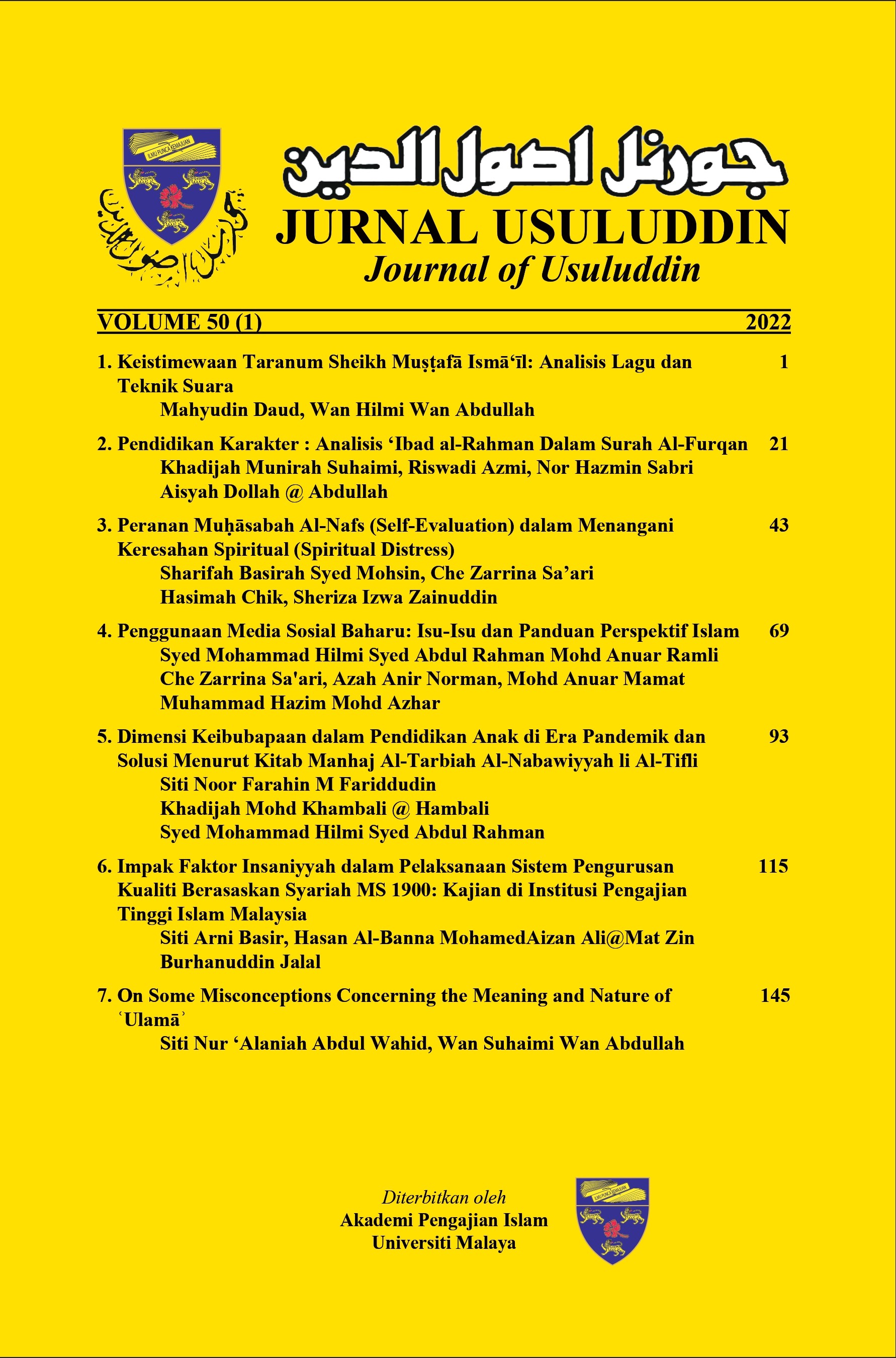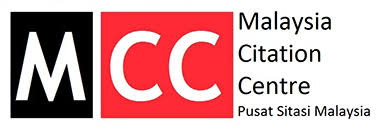Peranan Muḥāsabah Al-Nafs (Self-Evaluation) dalam Menangani Keresahan Spiritual (Spiritual Distress)
The Role of Self-Evaluation (Muḥāsabah Al-Nafs) in Spiritual Distress
DOI:
https://doi.org/10.22452/usuluddin.vol50no1.3Abstract
Spirituality is a core in the individual. Unresolved and incomplete spiritual issues in an individual is a crisis that can cause spiritual distress. Spiritual distress is a disorder of the belief system or values that affects the strength, hope and meaning of life. In the Islamic view, spiritual distress is closely related to the confusion of a person's spiritual elements that can be manifested by emotions and actions such as gloomy, sad, anxious, restless and so on. This disorder causes suicide thought in person. This situation can cause sick of Muslim’s soul. Muḥāsabah al-nafs (self-evaluation) is a proposed method to treat the soul thus improving the quality of the soul and evoking self-performance. The basis is always introspection and self -evaluation as well as self -awareness as a being created by Allah SWT. This paper aims to explain some of the methods by scholars of Sufism for healing from mental diseases based on the concept and implementation of muḥāsabah al-nafs. Emphasis on the element of muḥāsabah al-nafs has been shown to have a tremendous effect, leading to an individual's understanding of himself (makrifat al-nafs), which can then be employed in daily life to restore tranquillity and spiritual foundation in the self. As a result, individuals become more resilient.











